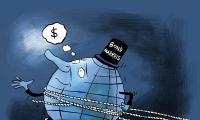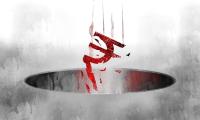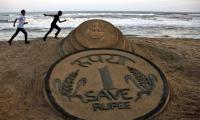India's Growth Challenges: CEA on Global Factors & China
India faces slowing globalization, divisive politics, and climate change, unlike China during its growth phase, says CEA V Anantha Nageswaran. He urges auto industry to reduce reliance on China.

Mumbai, Jun 14 (PTI) As India tries to grow faster, the country needs to grapple with "unfavourable" factors like slowing globalisation, divisive world politics and the raging issue of climate change, Chief Economic Adviser V Anantha Nageswaran said on Friday.
China, which grew at almost double digits between 1980 and 2015, did not have to contend with these factors during its high growth phase, Nageswaran said, addressing a Federation of Automobile Dealers Association (FADA) event here.
"When India is now trying to grow, all these three factors have become unfavourable for India. Globalisation is slowing down, global politics is getting divided, and climate change is a raging topic," he said.
Between 1980 and 2015, China was blessed with very strong globalisation, global politics not being as divisive and polarising, and the world not being as conflict-ridden, he said.
Making it clear that India has "troubled relations" with China, the academic-turned-policymaker CEA asked the auto industry to reflect on the growing reliance on China, given the northern neighbour's strengths in electric mobility and the imports we have to undertake to feed the "fashion of the day".
"We should not be substituting our dependence on Arab nations for crude oil to another country with which India has had troubled relations," he noted.
He explained that when it comes to e-mobility, there is growing import dependence on China for critical minerals and metals used by the auto industry to manufacture a vehicle.
Nageswaran also asked the dealers to look at this issue from the climate change lens, asking them to advise consumers accordingly.
"Dealers should also educate themselves and the public on the global climate impact of the purchase decisions that we make as consumers. It is one thing for the manufacturers to follow the fashion of the day. The fashion of the day is e-mobility," he said.
Elaborating on the same, he said e-mobility requires batteries, metals and minerals like lithium and graphite, charging stations and electricity generation from dirty resources like coal.
The auto industry needs to formulate its strategies depending on the priorities of India and not get influenced by the auto shows in the developed world alone, the CEA said.
Stating that Indian auto manufacturers do not rank high on the safety front, he asked dealers to impress the need for passenger safety to manufacturers and pointed out that India's economic growth is impacted because of the "needless" road deaths.
He rued that India is perceived to be less trustworthy and asked the industry to take corrective measures on the same.
"One of the things that India is considered to be deficient is in trust between people, between people and the government, between people and institutions, between people and intermediaries," he said, adding that this leads to excessive documentation and multiple attestation, among others, that extracts an economic cost.
He expressed satisfaction with the overall picture, when it comes to banks' lending to various sectors like personal loans, auto loans etc, and added that the Indian corporates are looking to borrow.
Acknowledging that auto sales in some segments are yet to return to the pre-COVID levels, he said a majority of the segments have comfortably exceeded the pre-pandemic sales levels.
Nageswaran, who spoke virtually, said that the process of making the Budget and Economic Survey under the new government has begun.
China, which grew at almost double digits between 1980 and 2015, did not have to contend with these factors during its high growth phase, Nageswaran said, addressing a Federation of Automobile Dealers Association (FADA) event here.
"When India is now trying to grow, all these three factors have become unfavourable for India. Globalisation is slowing down, global politics is getting divided, and climate change is a raging topic," he said.
Between 1980 and 2015, China was blessed with very strong globalisation, global politics not being as divisive and polarising, and the world not being as conflict-ridden, he said.
Making it clear that India has "troubled relations" with China, the academic-turned-policymaker CEA asked the auto industry to reflect on the growing reliance on China, given the northern neighbour's strengths in electric mobility and the imports we have to undertake to feed the "fashion of the day".
"We should not be substituting our dependence on Arab nations for crude oil to another country with which India has had troubled relations," he noted.
He explained that when it comes to e-mobility, there is growing import dependence on China for critical minerals and metals used by the auto industry to manufacture a vehicle.
Nageswaran also asked the dealers to look at this issue from the climate change lens, asking them to advise consumers accordingly.
"Dealers should also educate themselves and the public on the global climate impact of the purchase decisions that we make as consumers. It is one thing for the manufacturers to follow the fashion of the day. The fashion of the day is e-mobility," he said.
Elaborating on the same, he said e-mobility requires batteries, metals and minerals like lithium and graphite, charging stations and electricity generation from dirty resources like coal.
The auto industry needs to formulate its strategies depending on the priorities of India and not get influenced by the auto shows in the developed world alone, the CEA said.
Stating that Indian auto manufacturers do not rank high on the safety front, he asked dealers to impress the need for passenger safety to manufacturers and pointed out that India's economic growth is impacted because of the "needless" road deaths.
He rued that India is perceived to be less trustworthy and asked the industry to take corrective measures on the same.
"One of the things that India is considered to be deficient is in trust between people, between people and the government, between people and institutions, between people and intermediaries," he said, adding that this leads to excessive documentation and multiple attestation, among others, that extracts an economic cost.
He expressed satisfaction with the overall picture, when it comes to banks' lending to various sectors like personal loans, auto loans etc, and added that the Indian corporates are looking to borrow.
Acknowledging that auto sales in some segments are yet to return to the pre-COVID levels, he said a majority of the segments have comfortably exceeded the pre-pandemic sales levels.
Nageswaran, who spoke virtually, said that the process of making the Budget and Economic Survey under the new government has begun.
You May Like To Read
TODAY'S MOST TRADED COMPANIES
- Company Name
- Price
- Volume
- Vodafone-Idea-L
- 11.45 ( -1.72)
- 82903745
- AvanceTechnologies
- 1.16 (+ 4.50)
- 33515412
- Mehai-Technology
- 1.65 ( -4.62)
- 28125327
- Alstone-Textiles
- 0.28 ( 0.00)
- 25516655
- Sunshine-Capital
- 0.27 ( 0.00)
- 25448255





